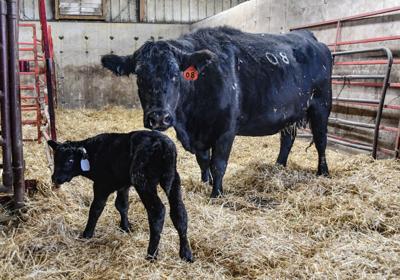The threat of new world screwworm has resulted in some volatility in the cattle market.
Bernt Nelson, economist with the American Farm Bureau Federation, says USDA Sec. Brooke Rollins announced another closure of southern ports of entry to livestock imports.
“USDA had previously announced a phased re-opening of southern ports, beginning with the furthest port away from where NWS has been detected in Mexico and moving east as continued progress is made on sterile fly production,” he said in his “In the Castle Markets” column.
“However, the re-opening was halted and livestock imports once again paused when NWS was detected 160 miles north of the sterile fly dispersal locations in Veracruz, Mexico — only 370 miles from the U.S. border.”
Nelson said a recent ERS study evaluated what it might look like if NWS would reach Texas now.
“According to the study, after adjusting for inflation, market conditions, etc. the impact would be around $1.9 billion,” he says. “This study did not account for the record-setting prices in 2025 along with some other market changes, which means the impact could be greater.”
The port closures will also have economic impact.
“The U.S. imports 1.2-1.5 million head of cattle from Mexico every year,” Nelson says. “These are mostly feeder cattle destined for feedlots and ultimately beef production. U.S. cattle slaughter was about 31.9 million head in 2024. In terms of production, 1.5 million head would be about 4% of 2024 slaughter. This is a significant portion of the market and while other fundamental factors like strong demand are currently having a bigger impact, this drop in supply will put upward pressure on cattle prices.”
Data from the latest USDA report shows 2025 beef production to be down with smaller production expected over the second half of the year. However, larger feedlot placements over the last half of 2025 prompted the USDA to increase 2026 production. Nelson says this forecast assumes that cattle imports from Mexico will remain banned.








(0) comments
Welcome to the discussion.
Log In
Keep it Clean. Please avoid obscene, vulgar, lewd, racist or sexually-oriented language.
PLEASE TURN OFF YOUR CAPS LOCK.
Don't Threaten. Threats of harming another person will not be tolerated.
Be Truthful. Don't knowingly lie about anyone or anything.
Be Nice. No racism, sexism or any sort of -ism that is degrading to another person.
Be Proactive. Use the 'Report' link on each comment to let us know of abusive posts.
Share with Us. We'd love to hear eyewitness accounts, the history behind an article.